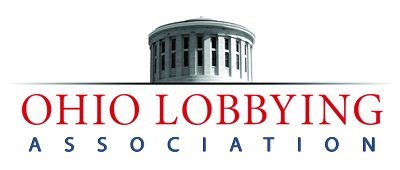About
OLA Model Standards of Conduct
To help preserve and advance public trust and confidence in our democratic institutions and the public policy advocacy process, professional lobbyists have a strong obligation to act always in the highest ethical and moral manner in their dealings with all parties. Lobbyists also have a duty to advance public understanding of the lobbying profession.
The Ohio Lobbying Association (OLA) accordingly, has adopted the following “Model Standards of Conduct” to provide basic guidelines and principles for lobbyists’ conduct. In general, these standards are intended as guidance for independent lobbyists who are retained to represent third party clients’ interests and to lobbyists employed on the staff of corporations, labor organizations, associations and other entities where their employer is in effect their “client.”
Lobbyists are strongly urged to act in accordance with these standards and to always practice the highest ethical conduct in their lobbying endeavors. Individual members of the Ohio Lobbying Association affirm their commitment to follow with these standards of conduct.
ARTICLE I – HONESTY & INTEGRITY
A lobbyist should conduct lobbying activities with honesty and integrity. Lobbyists should always work toward preserving, promoting and advancing lobbying as an ethical profession.
1.1. A lobbyist should be truthful in communicating with public officials and with other interested persons and should seek to provide factually correct, current and accurate information. If a lobbyist determines that the lobbyist has provided a public official or other interested person with factually inaccurate information of a significant, relevant, and material nature, the lobbyist should promptly provide the factually accurate information to the interested person.
ARTICLE II – COMPLIANCE WITH APPLICABLE LAWS, REGULATIONS & RULES
A lobbyist should encourage excellence in the field. He or she must comply fully with all laws, regulations and rules applicable to the lobbyist.
2.1. A lobbyist should be familiar with laws, regulations and rules applicable to the lobbying profession and should not engage in any violation of such laws, regulations and rules.
2.2. A lobbyist should not by intentional act or intentional omission cause a public official to violate any law, regulation or rule applicable to such public official.
ARTICLE III – PROFESSIONALISM
A lobbyist should conduct lobbying activities in a fair and professional manner.
3.1. A lobbyist should have a basic understanding of the legislative and governmental process and such specialized knowledge as is necessary to represent clients or an employer in a competent, professional manner.
3.2. A lobbyist should maintain the lobbyist’s understanding of governmental processes and specialized knowledge through appropriate methods such as continuing study, seminars and similar sessions in order to represent clients or an employer in a competent, professional manner.
3.3. A lobbyist should treat others – both allies and adversaries – with respect and civility.
3.4 A lobbyist should recognize the fundamental right of any citizen to communicate directly with government officials regarding government policies and actions—and not advocate for laws and regulations that would impede citizens’ exercise of that right.
ARTICLE IV – CONFLICTS OF INTEREST
A lobbyist should not continue or undertake representations that may create conflicts of interest without the informed consent of the client or potential client involved.
4.1. A lobbyist should avoid advocating a position on an issue if the lobbyist is also representing another client on the same issue with a conflicting position.
4.2. If a lobbyist’s work for one client on an issue may have a significant adverse impact on another client’s interests, the lobbyist should inform and obtain consent from the other client that may be adversely affected by the work even if the lobbyist is not representing the other client on the same issue.
4.3. A lobbyist should disclose all potential conflicts of interest to the client or prospective client and discuss and resolve any conflict of interest promptly.
4.4. A lobbyist should inform the client if any other person is receiving a direct or indirect referral or consulting fee from the lobbyist due to or in connection with the client’s work and the amount of such fee or payment.
ARTICLE V – DUE DILIGENCE
A lobbyist should vigorously and diligently advance and advocate the client’s or employer’s interests.
5.1. A lobbyist should devote adequate time, attention, and resources to the client’s or employer’s interests.
5.2. A lobbyist should exercise loyalty to the client’s or employer’s interests.
5.3. A lobbyist should keep the client or employer informed of the work being performed by the lobbyist and, to the extent possible, should give the client the opportunity to choose between various options and strategies.
ARTICLE VI – PUBLIC EDUCATION
A lobbyist should seek to ensure better public understanding and appreciation of the nature, legitimacy and necessity of lobbying in our democratic governmental process. This includes the First Amendment right to “petition the government for redress of grievances.”

